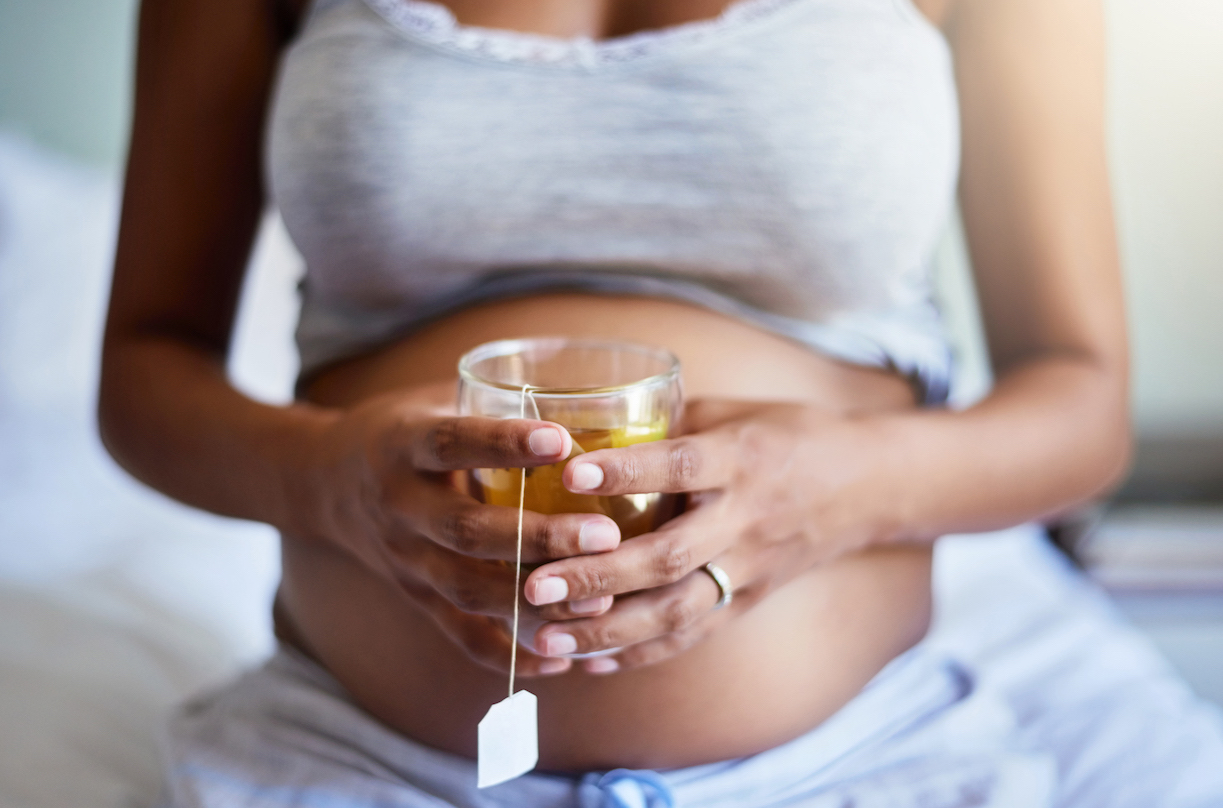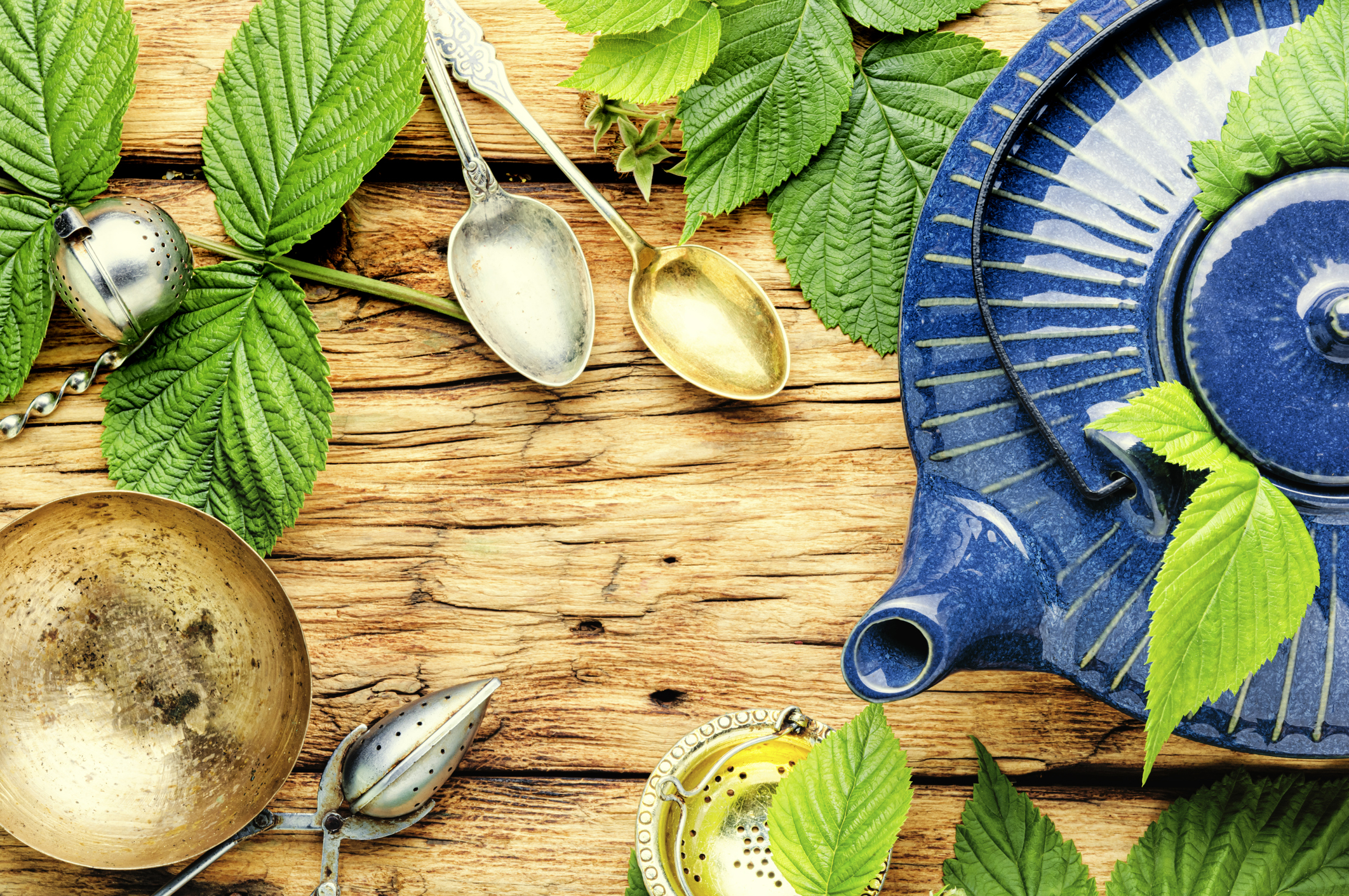Is it safe to drink raspberry leaf tea during pregnancy?


If you're expecting, you've probably heard that drinking raspberry leaf tea can help to prepare your body for birth.
Raspberry leaf tea during pregnancy is a centuries-old herbal go-to, used by mums-to-be before labour. But what are the proven benefits? And is it safe to drink raspberry leaf tea during pregnancy?
According to the World Health Organization, 80% of the world’s population use herbal medicines as their main or only form of treatment. So it’s no surprise that many pregnant women turn to traditional, natural home remedies when they are expecting.
Saying that, there's often conflicting evidence and limited research to support the benefits of alternative therapies. If you’re expecting and unsure if a natural remedy is safe, or which foods are safe when you are pregnant, always get advice from a medical professional first.
Is it safe to drink raspberry leaf tea during pregnancy?
Raspberry leaf tea – not to be confused with raspberry fruit tea – is made from the dried leaves of the red raspberry plant (Rubus idaeus). The medicinal leaves contain a phytochemical that is thought to be responsible for strengthening and stimulating the womb. They're also packed with vitamins and minerals to support health.
You can drink it, or you can freeze raspberry leaf tea into ice cubes to suck on. If you don’t like the taste of the tea you can also buy raspberry leaf capsules.
"Raspberry leaf tea is thought to help tone the uterus so that when you go into labour your contractions are more efficient and effective," explains Lesley Gilchrist, registered midwife and co-founder of My Expert Midwife.
Parenting advice, hot topics, best buys and family finance tips delivered straight to your inbox.
There are limited studies to back up the claims, however. And the research that is available shows little difference in the length of labour between women who take raspberry leaf tea during pregnancy, and those who don't.

But for most women, raspberry leaf tea is generally considered safe for moderation consumption during pregnancy.
"The only possible known side effects of raspberry leaf teas are nausea, loose stools and Braxton hicks," says Lesley. "But as some women do report that they feel it makes a positive difference to their labour, it’s really a case of personal choice."
Want to try raspberry leaf tea during pregnancy? Lesley advises following these pointers:
- Take it from around 32 weeks of pregnancy.
- Start with one cup per day and gradually increase to three cups per day.
- Don't drink large amounts in one go in an attempt to bring on labour.
- Stop, or cut down if you notice an increase in the frequency and/or strength of your Braxton hicks.
When to avoid raspberry leaf tea in pregnancy
It is recommended that you don't take raspberry leaf tea during pregnancy if any of these apply to you:
- You’ve previously had a short labour – lasting three hours or less.
- You're having a planned caesarean (c-section) birth for medical reasons.
- You’ve previously had a caesarean section.
- With a previous birth, you went into premature labour.
- You’ve experienced vaginal bleeding in the second half of your pregnancy.
- You have a history of breast or ovarian cancer, endometriosis or fibroids – or a family history of these conditions.
- You're expecting a baby who is breech.
- You have health or pregnancy complications, including high blood pressure.
- You're taking medication.
- You are pregnant with twins.
"There are some instances where raspberry leaf tea may not be safe for you so always discuss it with your midwife before taking it," says Lesley.

Senior writer Ali Horsfall has almost 15 years of experience as a journalist and has written for national print titles and women’s lifestyle brands including Woman & Home, Woman, Woman's Own, BBC magazines, Mothercare, Grazia and The Independent.